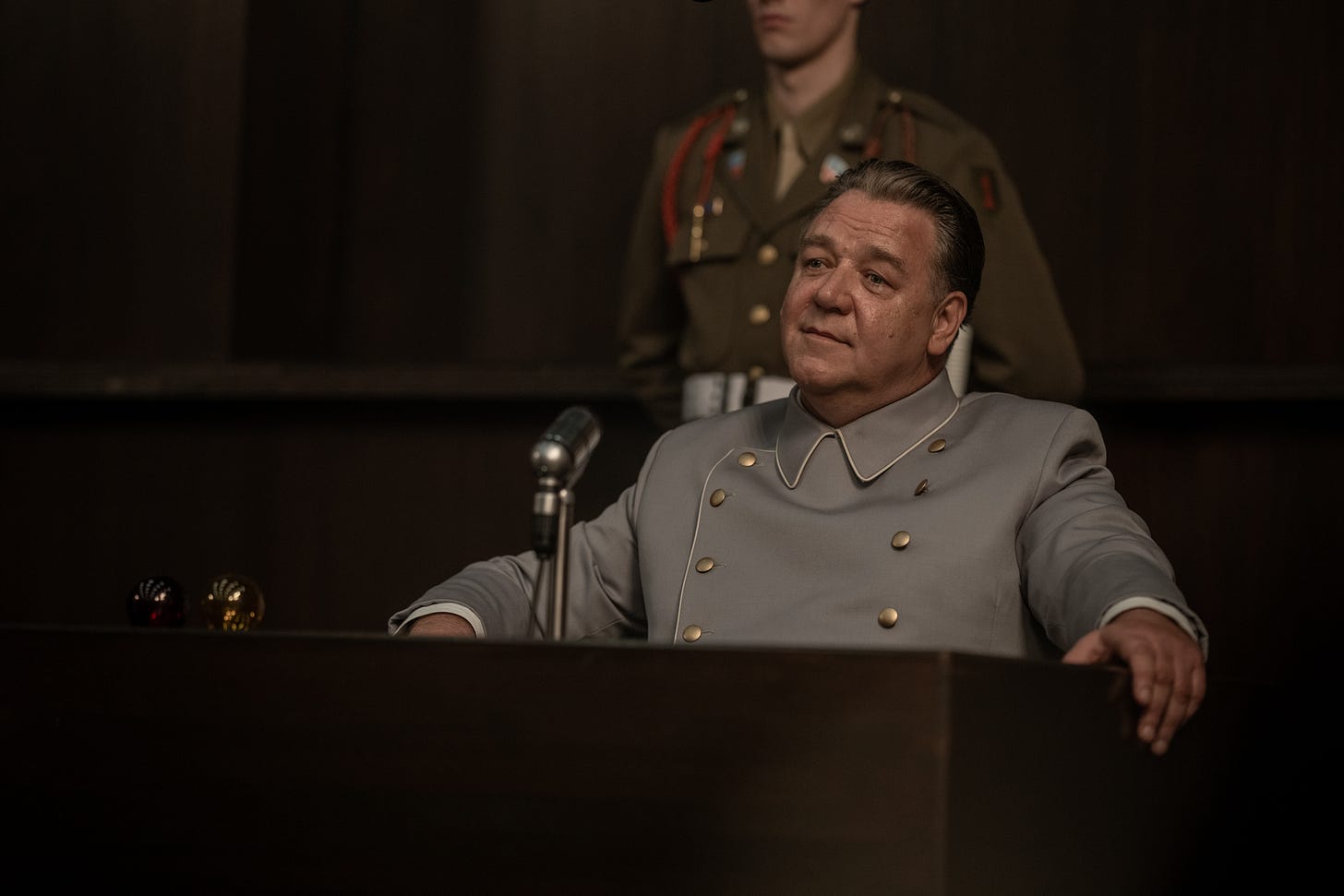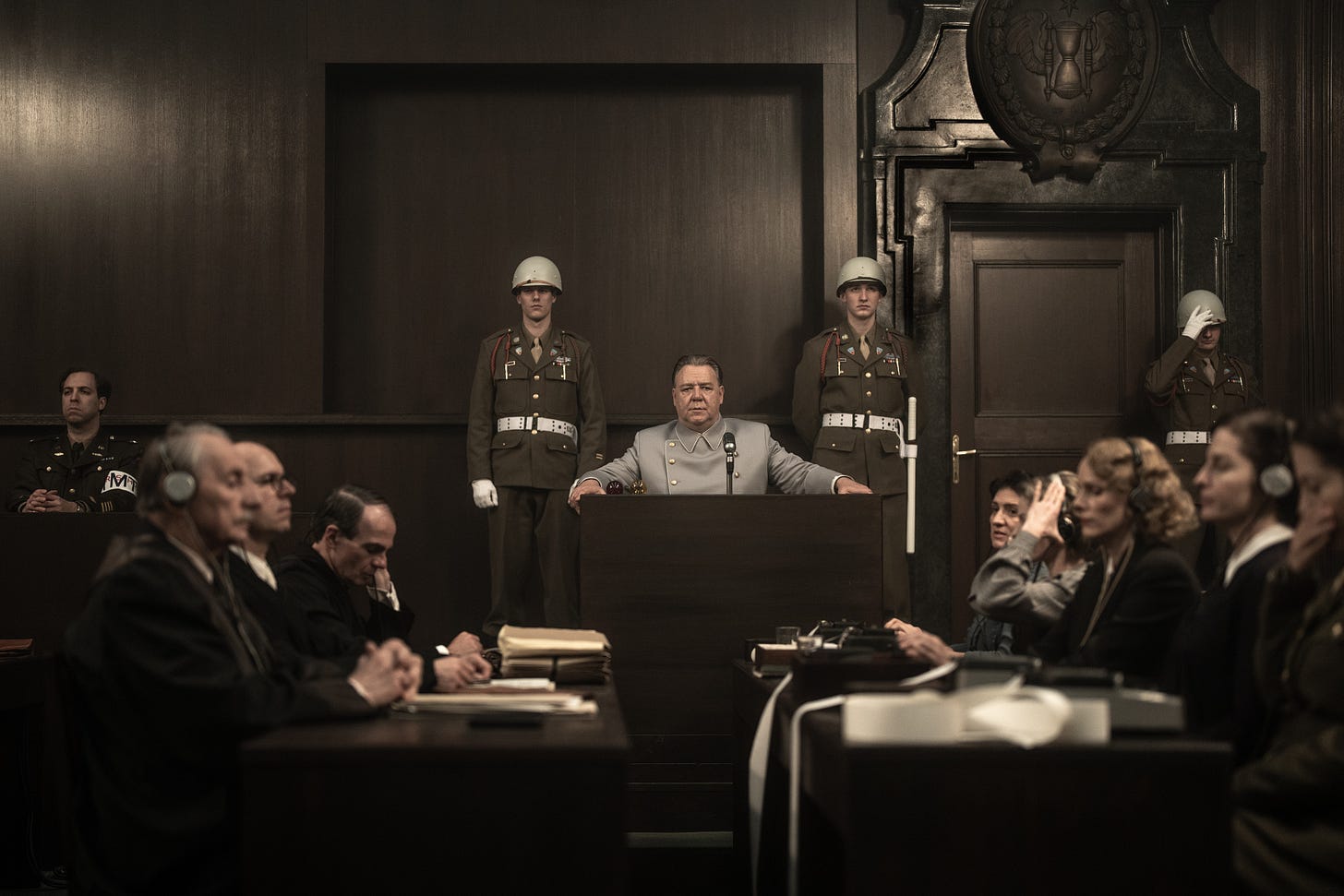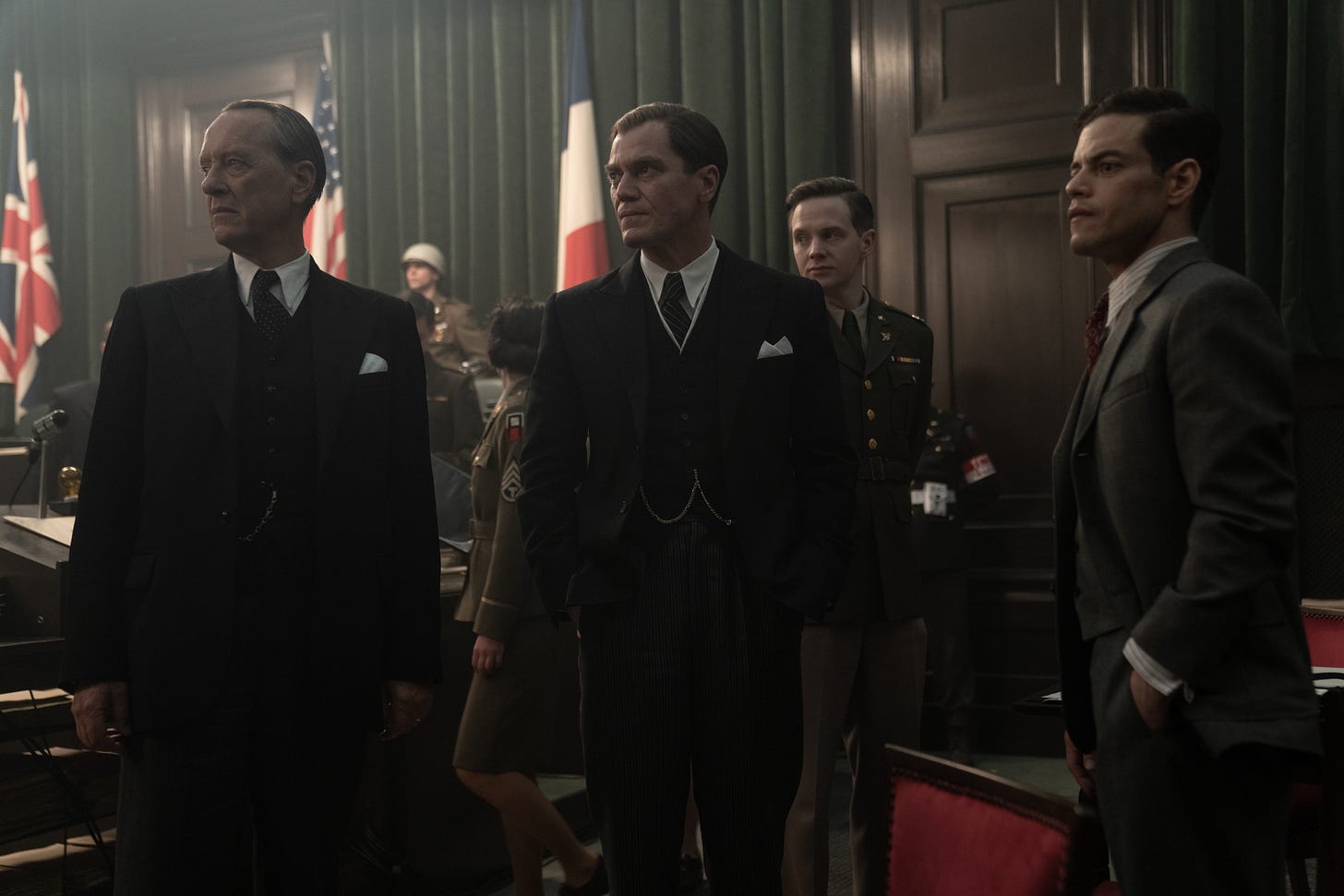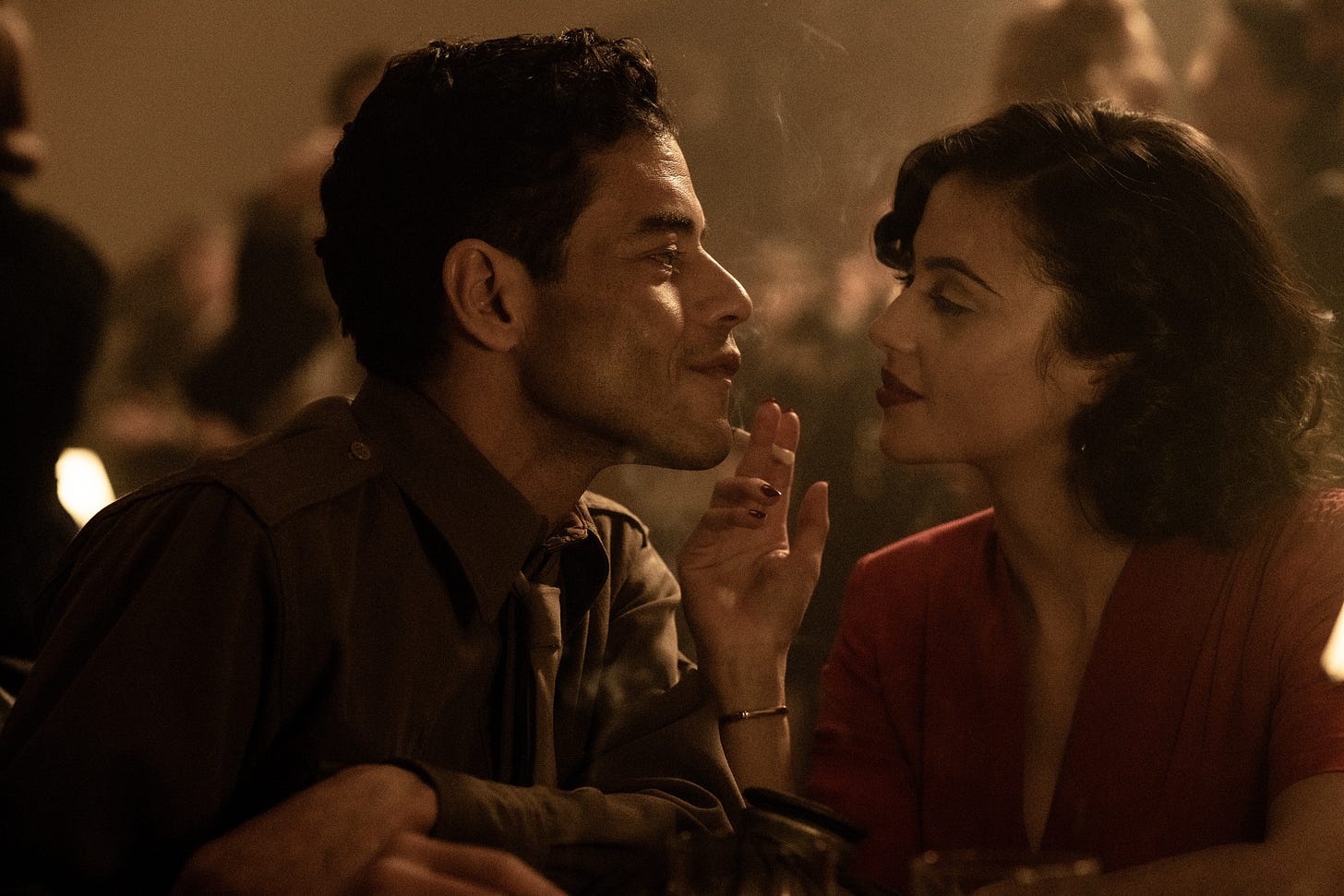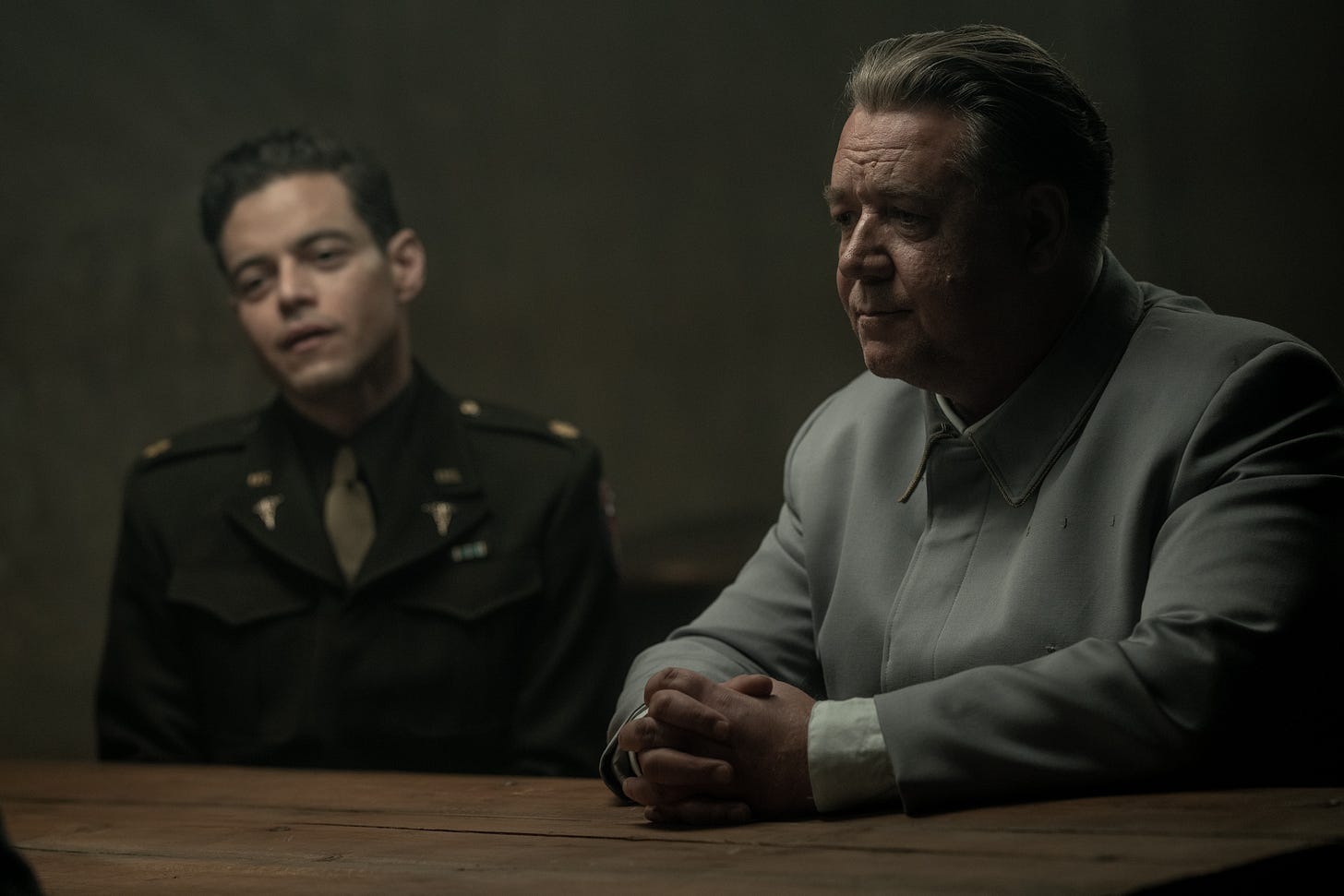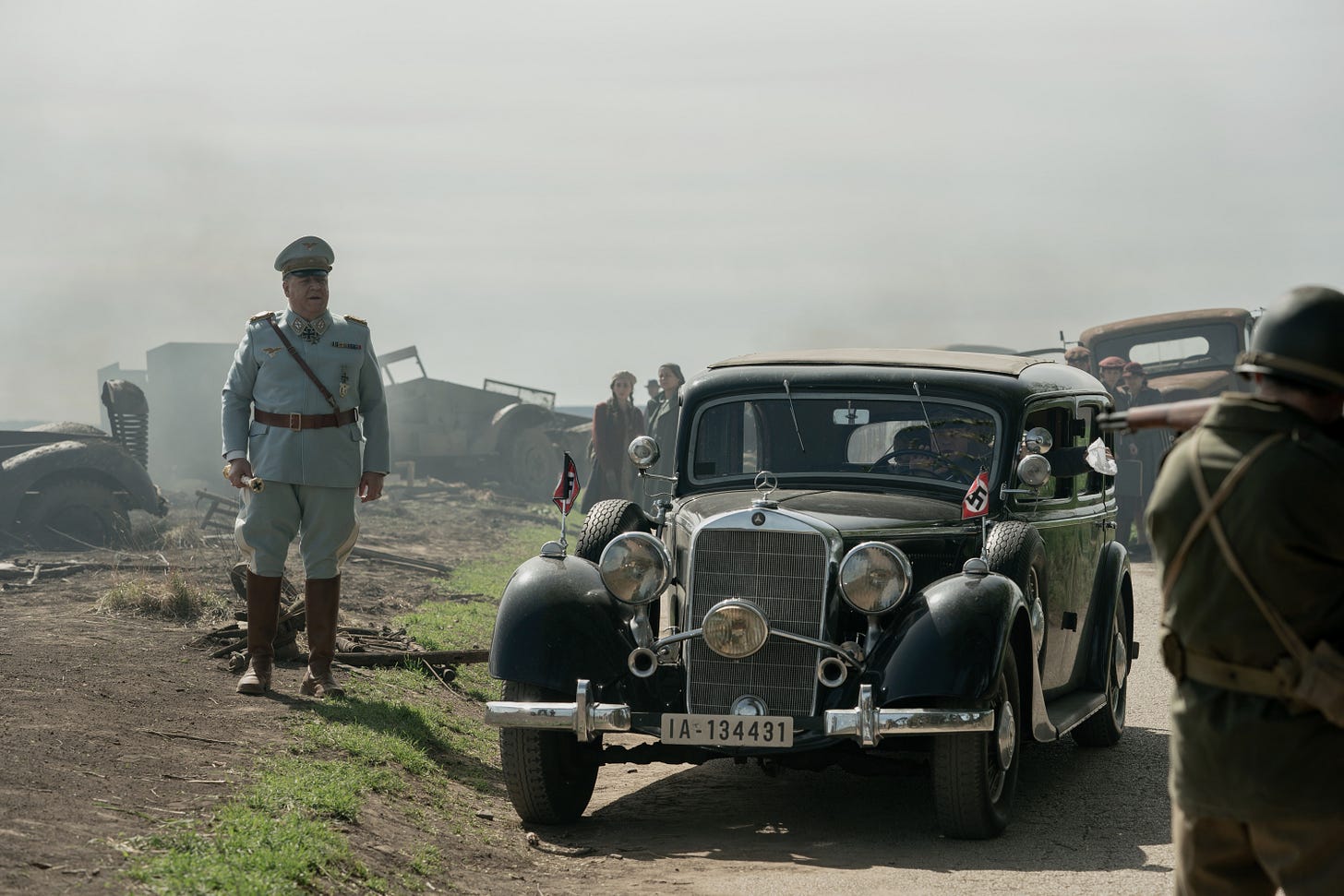'Nuremberg': Inside the Making of a Trial
James Vanderbilt, Rami Malek, and Michael Shannon on reviving the Nuremberg Trials and the fragile idea of justice itself
When the Nuremberg Trials began in 1945, the world faced an unprecedented moral reckoning. The war was over, but a single question remained: what do you do with men who had unleashed industrialized death upon millions?
For the first time in modern history, justice would not be vengeance. It would be principle. The architects of horror would stand before a tribunal, and the world would listen.
Eighty years later, writer-director James Vanderbilt returns to that crucible of conscience with Nuremberg (2025), a tense and unflinching drama that explores the intersection of justice, psychology, and power.
The film centers on three men: Dr. Douglas Kelley, played by Rami Malek, the U.S. Army psychiatrist tasked with examining the mental state of the captured Nazi leadership, Justice Robert H. Jackson, played by Michael Shannon, the Supreme Court judge who led the prosecution at the trials, and the defeated Adolf Hitler’s second in command, Hermann Göring, played by Russell Crowe.
Following acclaimed premieres at the Toronto International Film Festival and AFI Fest, Vanderbilt and his cast gathered for a virtual press conference on November 28, 2025, to discuss the film’s decade-long journey and the eerie modern echoes of its subject.
The long road to justice
James Vanderbilt began working on Nuremberg more than a decade ago. The idea, he said, came like a lightning strike.
“I first heard about the story,” he recalled. “I read Jack El-Hai, who wrote the book The Nazi and the Psychiatrist, that the film is based on. I read his book proposal 13 years ago, and it was only five or six pages long, but it was the quickest I said yes to anything in my life.”
He continued. “I used my own money to option the material, which I do not advise. But I was so immediately taken with it. I didn’t know there were psychiatrists in World War II. I certainly didn’t know one was tasked with doing something like this.”
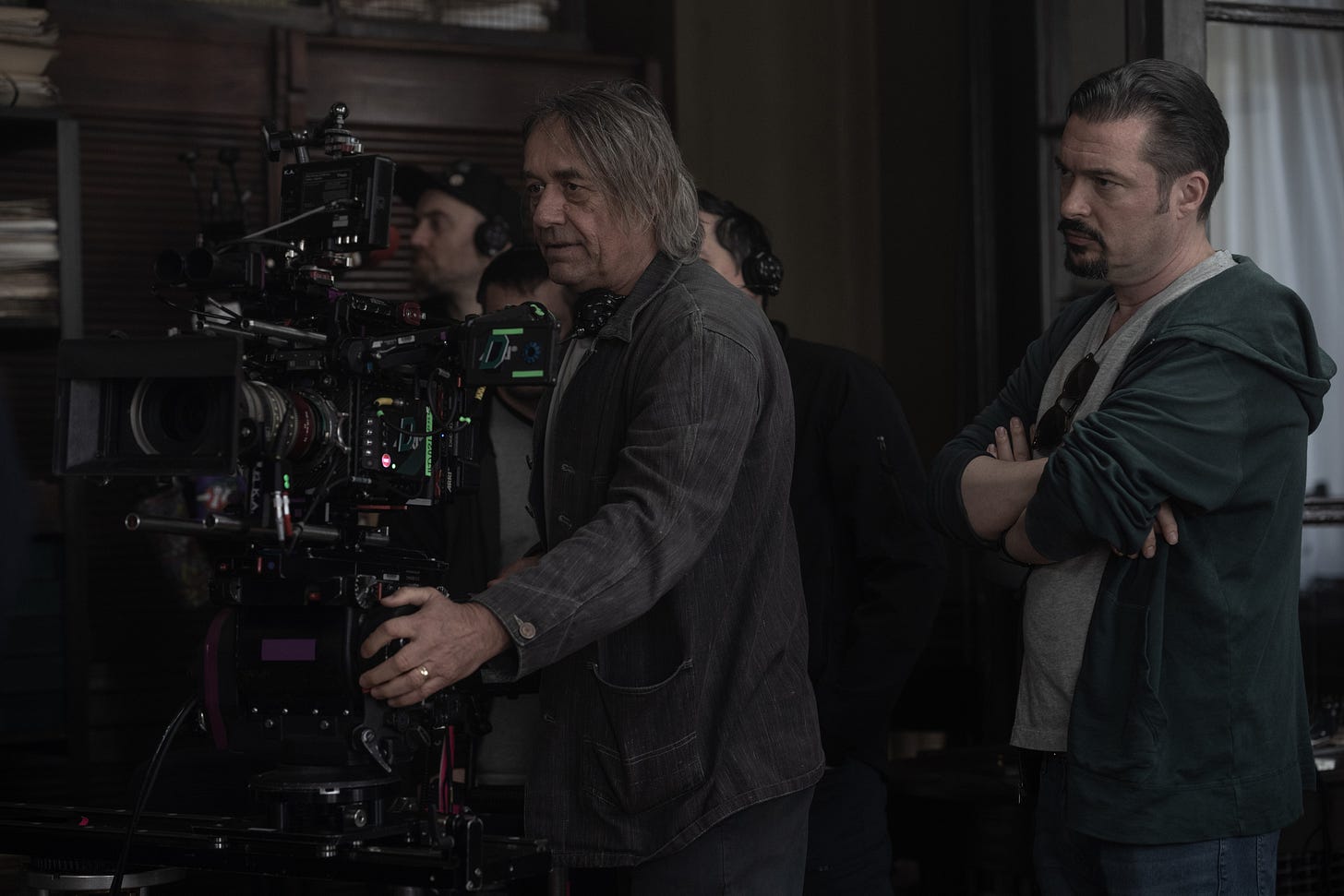
At first, Vanderbilt imagined a contained, psychological film: two men in a cell locked in a war of intellect and ideology. But research kept expanding the scope. “I thought my movie was going to be over here, in a cell the whole time between these two guys,” he said, “but then I read about Robert Jackson, Michael’s character, who isn’t really in the book. And I had never really heard of him—even though he was a U.S. Supreme Court justice—who is basically the guy who said, ‘We can’t just execute these men. We have to put them on trial.’”
That defiance changed history. “The U.S. Army wasn’t interested in a trial at all,” Vanderbilt said. “There was actually a standing order that Churchill and Roosevelt had agreed upon to shoot these men within 48 hours of their capture.
And Jackson said, no, this is an incredibly important thing that we have to do. Not only did he convince them, he took a leave of absence from the court, flew to Nuremberg, and became the chief U.S. prosecutor.”
That moment of moral clarity, Vanderbilt said, became the film’s backbone. “It’s about the moment when civilization decides whether it will be civilized.”
The burden of understanding
When Rami Malek first read Vanderbilt’s screenplay, he said it “felt like an extraordinary piece of literature.”
“It really did,” Malek said. “It read to me like—it’s a cliché, but I couldn’t put it down. I didn’t want to change a single word. James has a gift for weaving complexity and clarity.”
What struck him most was how human the story felt beneath all that history. “He approached this film with immense respect for history and for understanding this truly human story we were telling. It wasn’t just about recounting dates and verdicts. It was the opportunity to stand alongside giants in history, to retell a period of time that was both uncomfortable and necessary.”
Malek described Dr. Kelley as “quick-witted, charming, and very disarming. And when your roster of patients is the entire Nazi high command locked up in 22 cells, I think that’s quite useful.”
The prison scenes opposite Russell Crowe, who plays Hermann Göring, were filmed in real, confining spaces. “The stage was set by James and our cinematographer, Dariusz Wolski,” Malek said. “They had a plan for these cells—thirteen by ten feet. Usually on a set we would remove a wall, make room for the camera, but here it was as suffocating as possible. You had to remain completely focused. There’s no alternative but to look your counterpart dead in the eye and bring your A-game.”
He remembered that first day vividly. “I didn’t know how I would meet Russell. It was our first day on set, and it’s the first scene we have together. He gave me a nice compliment about my work, and I couldn’t tell if he was trying to charm me as Hermann Göring or if it was just Russell. But there was respect for what we had on our hands. It’s intimate, it’s epic, it’s about a handful of voices that changed the way the world thinks about justice.”
The work took its toll. “There was one moment where we were shown the footage—the actual atrocity footage. James so smartly kept it at a distance from us. I could only watch six or seven takes before I couldn’t take it anymore. I removed myself and waited in Göring’s cell. That’s when we decided that in that scene, Kelley would finally invade his personal space, sit on his bed, and confront him.”
He spoke of how each take became a kind of psychological duel. “Sometimes I would lower my tone instead of raising it. Things almost became a whisper. And that would bring me even closer to Russell’s face, where I could see a bead of sweat come down. I thought, is that because of performance or the heat of that cell? After every take we could just look at each other—not smiling, not blinking—but knowing what we were bringing to that moment.”
“It wasn’t about who delivered the better performance,” Malek added. “It was about who was going to allow us to tell this story about moral courage and resilience. For the purpose of speaking truth to power in all its iterations.”
The voice of justice
For Michael Shannon, stepping into the shoes of Robert Jackson was both humbling and illuminating.
“It’s very humbling to be offered the opportunity to even pretend to be this person,” he said. “What he accomplished in his life is staggering. But the one solace of being in what can be considered a pretty silly profession is that you get to inform the world about things that they probably don’t know much about—people, stories that are important.”
Shannon was struck by the power of Jackson’s words. “These are the man’s words,” he said. “The speech he gives, his opening statement—that’s his speech with edits. What I say is what he said, and it’s one of the most moving pieces of oration in the history of civilization, or at least the modern era.”
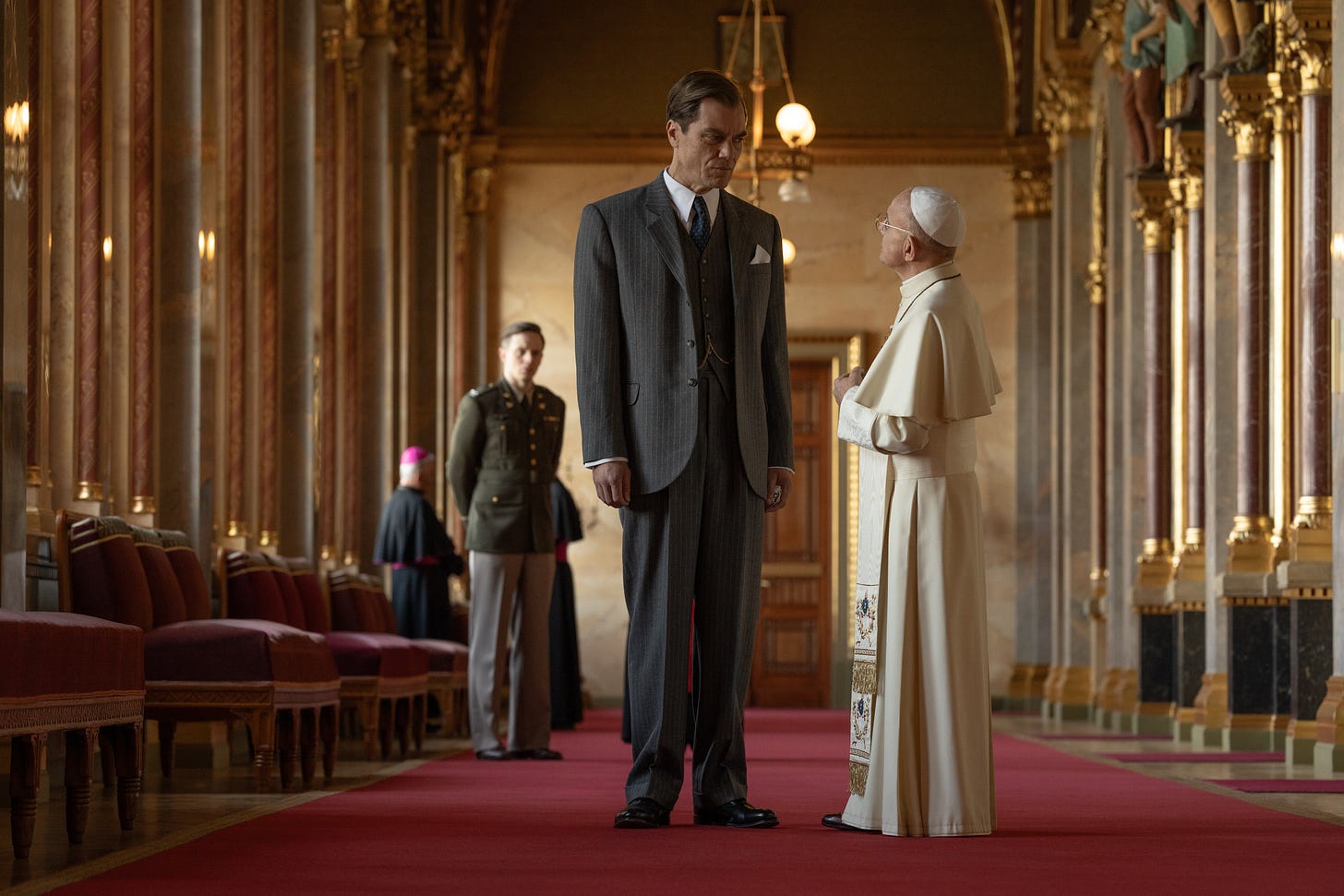
He agreed with Vanderbilt that cinema has a singular ability to make history felt. “You can read about this event, you can study it, you can watch documentaries, but there’s something about cinema that actually makes it enter in a different way—in a more emotional way, where you can actually feel it if we’re all doing our jobs.”
Asked about parallels with today’s world, Shannon was blunt. “Frankly, I didn’t find it so threatening just from a personal standpoint,” he said. “It’s not me—it’s Jackson. And you’re not going to do anything to Jackson, God rest his soul. I’m just showing you what this man did. If anybody has an issue with Jackson or what he did, that’s between them and him. But not standing up for what you believe in or stating your truth is cowardly. And I don’t want to be a coward.”
A verbal gunfight
The film’s centerpiece is a 22-page courtroom exchange between Shannon’s Jackson and Crowe’s Göring—shot in a single day. Vanderbilt called it “a verbal gunfight.”
“I didn’t feel trapped,” he said. “I felt liberated by it because you have two of these guys who are both ready to go. Our first AD [Assistant Director] had a heart attack when I told her we were gonna do it in one day—because you do not shoot twenty-two pages a day. But Russell and Michael were completely down for it, and it was one of the most incredible days I’ve ever had on a film set.”
He grinned recalling the reaction in the room. “We had three hundred extras in the courtroom. After the first take, they stood up and applauded. As they should.”
The courtroom set was built to scale. “Russell and Michael were about fifty feet away from each other,” Vanderbilt said. “That’s far to do a scene that gets that intense between two people. Plus, Michael couldn’t move. Usually, you know, Tom Cruise can walk around and talk to Jack Nicholson. But Michael had to stay at that lectern.”
Shannon said the realism made sense. “In a real court proceeding they wouldn’t come in after a half hour and say, ‘Are you tired? Would you like a little break?’ You go until you’ve got the guy or you don’t.”
Standing on the shoulders of giants
Vanderbilt acknowledged the inevitable comparison to Stanley Kramer’s Judgment at Nuremberg (1961), though he was quick to clarify the difference. “It’s actually a different story,” he said. “People say, ‘How could you remake Judgment at Nuremberg?’ and I tell them, ‘But we didn’t remake it. This is a different trial, four years earlier.’”
Still, he and cinematographer Dariusz Wolski paid tribute to Kramer’s classic. “We screened it again right before shooting,” Vanderbilt said. “The opening statement of that film, Kramer shoots as a 360 around Richard Widmark. We did that with Michael as a tip of the hat.”
A moment at the AFI screening left him emotional. “I got to meet Stanley Kramer’s daughter and widow,” he said. “They both came to see the film, and both told me they loved it. That was one of the most special moments of my life. You dream about making something like this, and then you meet people who knew one of your heroes.”
The weight of conscience
For Malek, Nuremberg is about confronting silence as much as it is about confronting history. “I’ve always been drawn to roles that raise questions rather than give easy answers,” he said. “Whether it’s about identity or power or responsibility. Storytelling, for me, has always been a way of keeping conversations alive—and of asking audiences to look at themselves a little differently.”
With Nuremberg, those questions become painfully direct. “What do we do in the face of injustice?” Malek asked. “That’s the heartbeat of it. And that’s why this was exceptionally meaningful on every level.”
Vanderbilt nodded. “The thing that struck me through all this research is how fragile justice is. It doesn’t just exist. It has to be built. It has to be defended. That’s what Jackson understood—and what I hope the film reminds people of.”
Nuremberg is a film about a uniquely important event in judicial history, but it’s also a reminder that justice itself is a human invention—one that endures only through the courage of those willing to uphold it. As Michael Shannon said, “Cinema makes you feel it.” And in this case, feeling it may be the most important part.
(This article is based on the official transcript from the Nuremberg press conference held for journalists via Zoom on November 28, 2025.)


